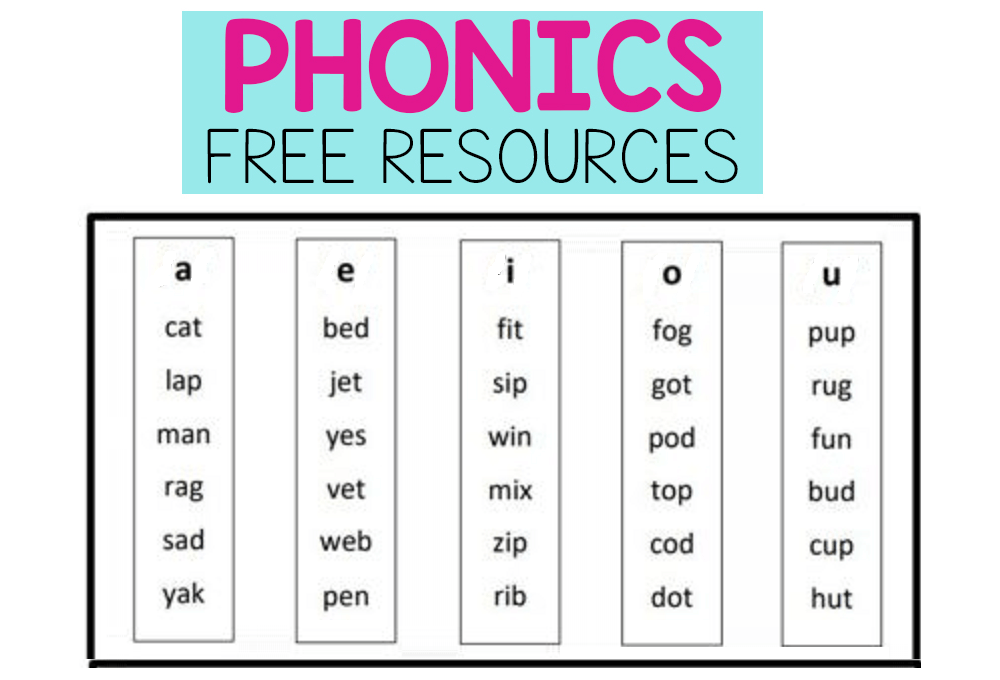
Its common for 4-6 year old kids to attend Phonics classes as Phonics is known to help children to read, write and spell words better.
What is Phonics and why is it important?
Reading is an important part of a child’s education, and the sooner a child starts reading, the more knowledge a child can assimilate from reading various kinds of books.
GET INSTANT HELP FROM EXPERTS!
- Looking for any kind of help on your academic work (essay, assignment, project)?
- Want us to review, proofread or tidy up your work?
- Want a helping hand so that you can focus on the more important tasks?
Hire us as project guide/assistant. Contact us for more information
However, for a child to be able to read, the child needs to first understand the sound of the various letters in the alphabets
This is where Phonics is useful, as it teaches children how the various letters, and their combination, sound, so they get the confidence to break works into individual parts and say them together (with the right pronunciation).
All children eventually learn to read, but without the basic understanding of how the letters sound together, they may pronounce certain words wrongly, and if those mistakes are not spotted, those words will become a part of their vocabulary.
Phonics provides kids with the ability to confidently decode the words of the English language, enabling them to read better from an early age. It also improves their writing as well as their spelling.
However, while knowing phonics will help a child to read better, it is not necessarily going to improve their comprehension. So, it is a good idea to check with the child if they have understood the passage properly, once they have read it.
There are some children who find it difficult to make the tongue and mouth movements needed to pronounce certain words. So, they may replace certain letters, which they find difficult to pronounce, with other letters.
Phonics can help you understand if the child has trouble with speech, in which case you can seek help through speech therapy.
Pronunciation Examples
Letter “a”
ant, apple, hand, lamp (letter “a” makes a long sound)
baby, gate, say, tail (letter “a” makes a long sound)
more examples:
can (short), cane (long)
tap (short), tape (long)
pan (short), pane (long)
cap (short), cape (long)
letter “e”
egg, elephant, bell, hen (letter “e” makes a short sound)
eat, sea, tea, bee, seed (letter “e” makes a long sound)
letter “i”
bit, fin, lit, tip (letter “i” makes a short sound)
bite, fine, light (letter “i” makes a long sound)
letter “o”
on, odd, shop (letter “o” makes a short sound)
pope, rope, soap, (letter “o” makes a long sound)
Phonetics and Grammar: Resources
Learning phonetics and grammar can never be interesting without play way method. Most English learning resources make use of various board games, flash cards and other activities to make learning fun. Kids have fun while gaining knowledge.
Read: Grammar for beginners.
English Phonetics courses are also available for teachers to help them understand the real problems behind improper and mispronunciations and look for strategies to correct them.
These teacher training courses can be pursued by anyone willing to take up pre and primary teaching and can be completed along with a Diploma /Degree in Pre and Primary Teachers Training. These courses provide a better understanding of pronunciations which will increase their possible job prospects and also help them effectively teach Phonetics and Grammar.
Phonics Dictionary: A phonics dictionary is a great tool for Parents, Teachers and children to practice word mapping and reading, and it includes Phonics rules, blending, vocabulary clues and a spot for them to write their own words with the same pattern. Use a phonics dictionary to give them a reference and feel more independent reading and writing.
Phonics Classes: Course Contents
In most Phonics courses, the following is usually covered:
- Learn the 42 letter sound (Phonemes)
- Blending words to read
- Learning letter formations
- Identifying sound in the word (Segmenting)
- Learning ‘Tricky’ irregular words
- Worksheets
Difference between Phonics and Phonetics?
There are many who get confused between Phonics or Phonetics. There are many who think these two words are the same, and some think there’s some difference (although they are unable to differentiate between the two.)
So what’s the difference between Phonics and Phonetics?
Phonetics is the scientific study of speech sounds, and phonics is considered to be a simplified form of Phonetics.
So while phonetics is the study and classification of spoken sounds in languages, Phonics is the method of teaching early beginners to read and pronounce words by learning the phonetic values of letters, groups of letters, syllables, etc.
Phonics
Phonics is the branch of linguistics concerned with spoken sounds – phonetics. It’s the correlations between sound and symbol in an alphabetic writing system; the phonic method of teaching reading.
Phonics is basically associating sounds with the 26 letters of the alphabet. It’s an effective technique that helps kids learn to recognize and say a lot of words.
Phonetics
The study and classification of speech sounds, esp. with regard to the physical aspects of their production; the branch of linguistics that deals with this.

Leave a Reply